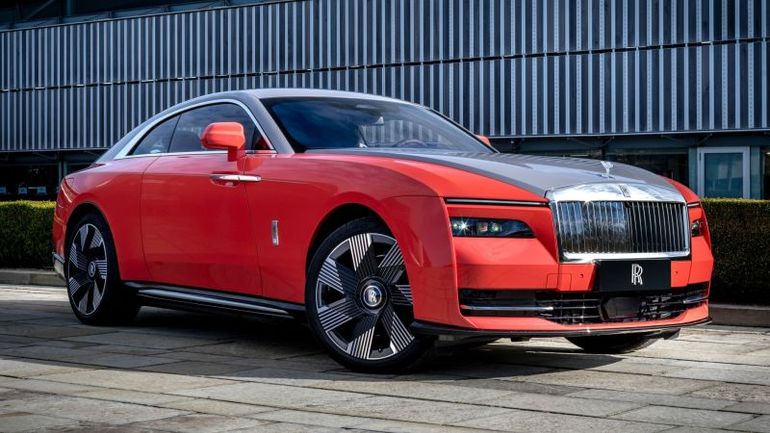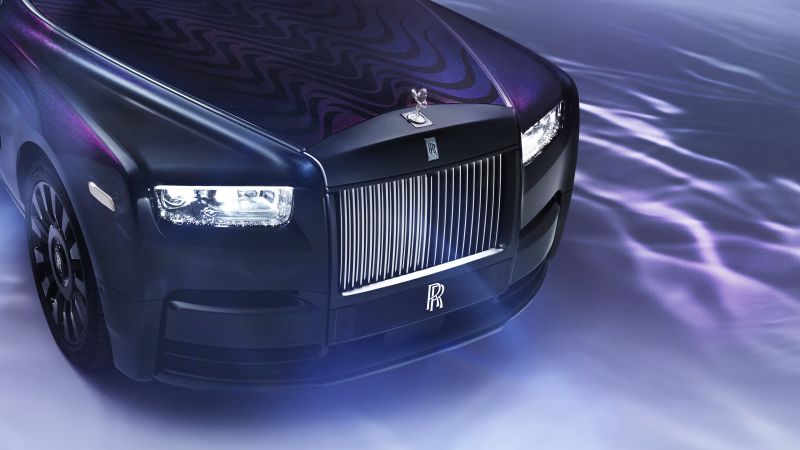
Rolls-Royce Expands Factory for Enhanced Car Production Precision

Rolls-Royce announces a major expansion of its Chichester, UK factory. With plans to construct five new buildings, the BMW subsidiary aims to elevate its car production process with a scheduled start next year.
Rolls-Royce is making big changes at its Chichester factory in England. The BMW subsidiary is getting ready to build five new buildings, with construction set to begin next year.
When car manufacturers usually expand their factories, it's to produce more cars. But Rolls-Royce is not your typical carmaker. Increasing production could diminish the exclusivity that the brand is known for.
This factory expansion is not aimed at increasing the number of cars produced, but rather at creating more luxurious and expensive cars. This process takes longer and needs additional space for workshops and storage of special materials.
The expansion reflects the preferences of Rolls-Royce's extremely wealthy customers. Although they may not purchase a large number of cars, they are willing to invest more in each individual vehicle.
The Rolls-Royce Phantom Syntopia's has glass flecks to create sparkling designs.
The Rolls-Royce Phantom Syntopia's has glass flecks to create sparkling designs.
Rolls-Royce
In 2020, Rolls-Royce saw a 17% increase in sales, hitting a new high of 6,032 cars and SUVs sold globally. However, during the same period, the average price customers paid for their vehicles went up by 43%, from $350,000 in 2020 to an average of $500,000 each last year.
The increased revenue per vehicle is mainly due to the more intricate and time-consuming customization requests, known as "bespoke" by Rolls-Royce. The luxury customization programs are referred to as "Bespoke" and for fully customized models, as "Coachbuild."
Martin Fritsches, president of Rolls-Royce Motor Cars Americas, mentioned that the focus is not necessarily on growing in volume. Instead, the bespoke area is becoming more significant and expanding rapidly, especially in recent years.
The factory is set for its first major expansion since it was constructed in 2003 after BMW acquired the brand in 1998. Previously, Rolls-Royce cars were manufactured alongside Bentleys, which Rolls-Royce had acquired in 1931, at a facility in Crewe, UK.
Bentley, which is currently owned by Volkswagen, continues to manufacture cars in Crewe. They also offer their own customization program. In the past year, almost 75% of Bentley customers have asked for personalized options, which is a 43% rise from the previous year.
Italian supercar companies Lamborghini and Ferrari have also noticed a growing demand for customization options among their customers.
In a recent interview with CNN, Lamborghini chief executive Stephan Winkelmann mentioned that the company faces limitations in terms of market size and market segments. He emphasized the importance of maximizing the potential of each car they produce.
The trend of extreme vehicle customization is on the rise due to the growing levels of wealth among the ultra-rich globally. With more affluent individuals having greater financial resources, they are increasingly opting for extravagant features such as diamond dust paint and built-in picnic gear in their cars.
"The customer may have money, but they are also discerning. You need to prove that your price increase is justified," explained Javier Gonzalez Lastra, an investment partner at Tema ETFs, a luxury goods investment fund.
When we talk about bespoke, it's not just about picking out paint colors, although that is certainly an option for customers. Rolls-Royce buyers go to the extent of providing nail polish or necktie samples to match their car's color. In addition to this, customers are also requesting special wood inlay designs, customized fabric patterns, and unique cabinetry for their vehicles. According to Fritsches, these types of requests have been on the rise in terms of both quantity and complexity.
Fulfilling these types of requests requires both time and space. For example, the Rolls-Royce sedan known as the Phantom Syntopia featured iridescent paint with varying amounts of glass particles, creating unique designs on the car's exterior. This same effect was carried over to the lacquered tray tables inside the car. Additionally, the interior showcased a dazzling fabric design illuminated by thousands of thin fiberoptic cables. To top it off, the car even had a custom scent, a first for Rolls-Royce.
Sources suggest that the Phantom Syntopia likely cost over $3 million, although Rolls-Royce did not confirm the exact price. The car took 18 months to build following a four-year design and development process, as reported by Rolls-Royce.
The Phantom Syntopia has a special Weaving Water design in its Starlight Headliner.
The Phantom Syntopia has a special Weaving Water design in its Starlight Headliner.
Craftsmanship is key when it comes to Rolls-Royce cars, as mentioned by Fritsches. He explained that more time is needed to perfect the intricate details, requiring extra space for storing materials.
The Phantom Syntopia may have been an extreme case, but there are other projects that also require special features like intricate wood and mother-of-pearl designs.
According to Fritsches, having a greater amount of custom-made cars means needing more space for assembly and specialized workshops to ensure that customers receive their finished vehicles in a timely manner.
Rolls-Royce has made a few custom-built cars that are different from their usual models like the Phantom or Cullinan. These unique cars, such as the Rolls-Royce Boat Tail, are one-of-a-kind and can be very expensive, costing tens of millions of dollars. In fact, only three Boat Tail cars were made.
Editor's P/S:
The expansion of Rolls-Royce's Chichester factory is a testament to the growing demand for ultra-luxurious and bespoke vehicles. As the ultra-wealthy seek to differentiate themselves through their possessions, car manufacturers are adapting to meet their discerning tastes. The trend towards extreme vehicle customization reflects the desire for exclusivity and individuality among the elite.
This shift in consumer preferences has implications for the automotive industry as a whole. While mass production remains important for affordability, the rise of bespoke customization suggests a growing niche market for high-end, one-of-a-kind vehicles. Car manufacturers who are able to cater to this discerning clientele will be well-positioned to capture a share of this lucrative market.










